Menu
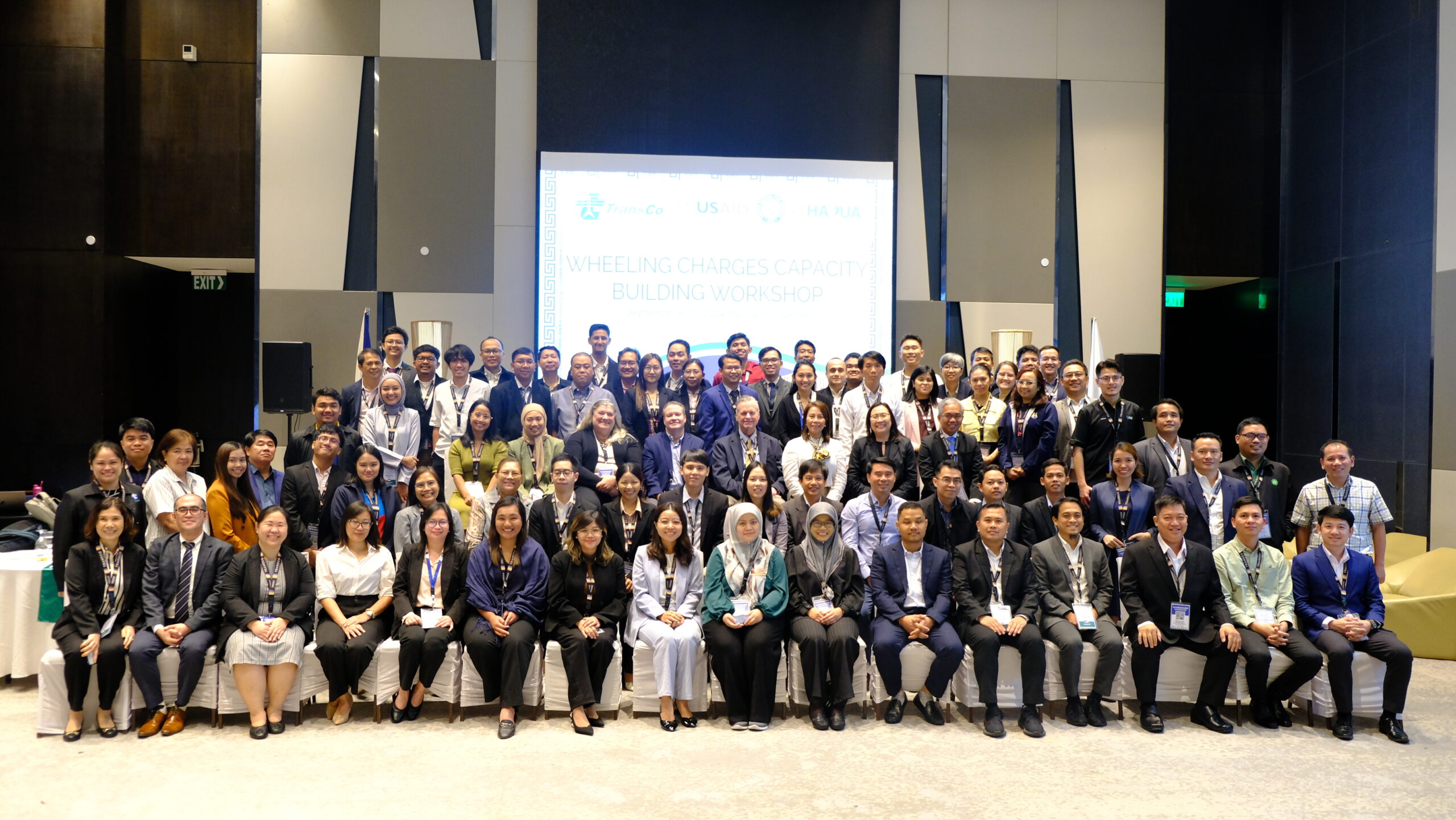
Photo 1. Group Photo of Wheeling Charges Capacity Building Workshop
The ASEAN Centre for Energy (ACE), in cooperation with the USAID Southeast Asia Smart Power Program (SPP), HAPUA Working Group 5, National Transmission Corporation (TransCo) successfully delivered the Wheeling Charges Capacity Building Workshop under the ASEAN Power Grid (APG) initiative held on 9-10 September 2024. The two-day in-person workshop was hosted by TransCo of the Philippines and attended by the members of the Head of ASEAN Power Utilities/Authorities (HAPUA) and ASEAN Energy Regulator Network (AERN). Held in Quezon City, Metro Manila of the Philippines, this intensive capacity building has brought together over 100 workshops participants from ten (10) ASEAN Member States (AMS) to embark on the important role of transmission and distribution tariffs for ASEAN power trade, economic principles and cost basis for wheeling charges, develop the methodologies, data required to calculate wheeling charges in ASEAN, and its applications for either multilateral power trading, retail wheeling or direct power purchase.
This capacity building workshop was also aimed to fulfil the ASEAN Plan of Action for Energy Cooperation (APAEC) Program Area No.1: ASEAN Power Grid, particularly under Action Plan 3.2 on harmonising the minimum technical requirements to advance multilateral electricity trading such as Wheeling charges methodology.
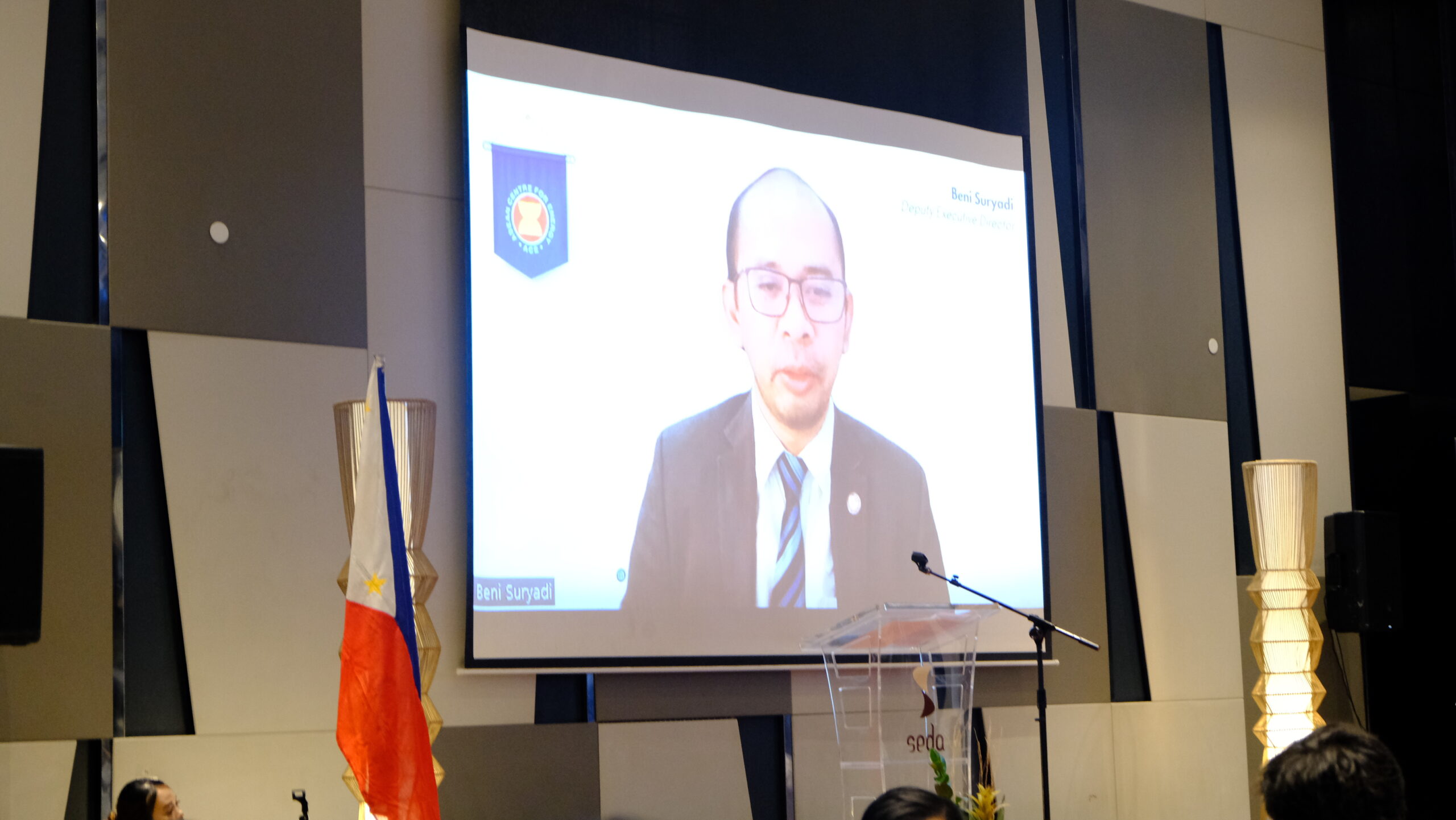
Photo 2. Opening remarks by Beni Suryadi, Acting Executive Director of ACE
The first day of the workshop, commenced with a keynote speech featuring key addresses from Engr. Fortunato C. Leynes President of the National Transmission Corporation (TransCo), Dr. Rowena Cristina L. Guevara, Undersecretary Department of Energy (DOE) of the Philippines and Grayson Heffner, Director, Utilization & Power Trade, USAID Southeast Asia Smart Power Program (SPP). These figures welcomed all esteemed participants and reinforced the important role of standardised wheeling charges in driving ASEAN’s cross-border electricity trade between renewable energy developers and sustainability electricity consumers. Beni Suryadi, Acting Executive Director of ACE, concluded the opening remarks by urged AMS to pursue united efforts embodied in APAEC Phase II 2021-2025 to formulate methodologies and data required for structured wheeling charges in ASEAN.
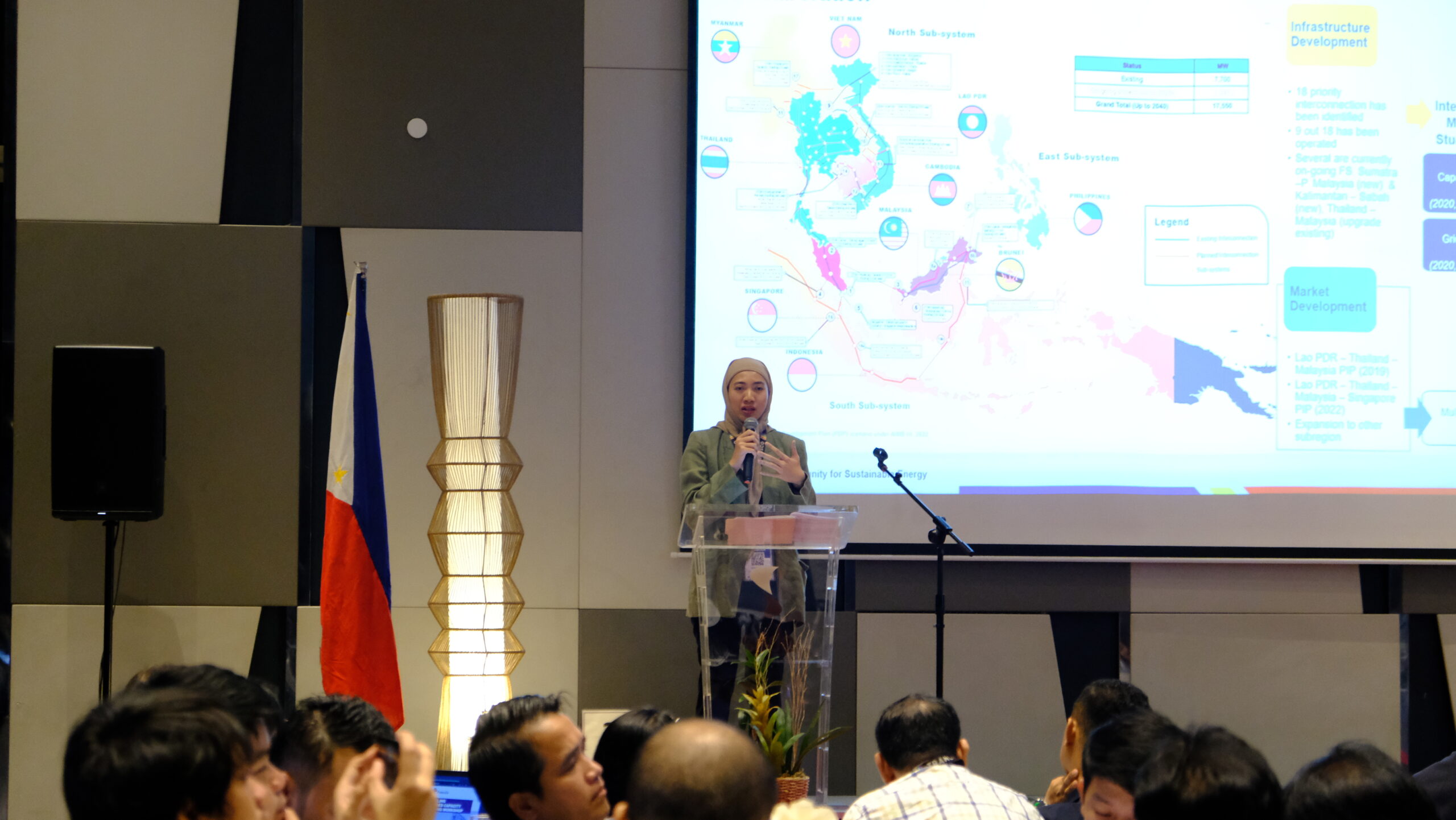
Photo 3. Presentation by Nadhilah Shani, Senior Research Analyst on Power at ACE
The morning began with the first technical training sessions from the distinguished figures. Nadhilah Shani, Senior Research Analyst on Power at ACE, delved into an overview of wheeling charges as an enabling framework for multilateral power trade and the ASEAN Power Grid (APG). In the next session, Grayson Heffner elaborated on the economic principles to encourage investment across ASEAN utilities and authorities. Moving forward, the training session deliberated on the technical intricacies of wheeling charges, led by John Garvey, Energy Specialist at Deloitte, and Carolyn Wetterlin, Senior Manager of Xcel Energy. This session provided a detailed insights into establishing the cost basis, standardised cost regulation in determining the transmission revenue.
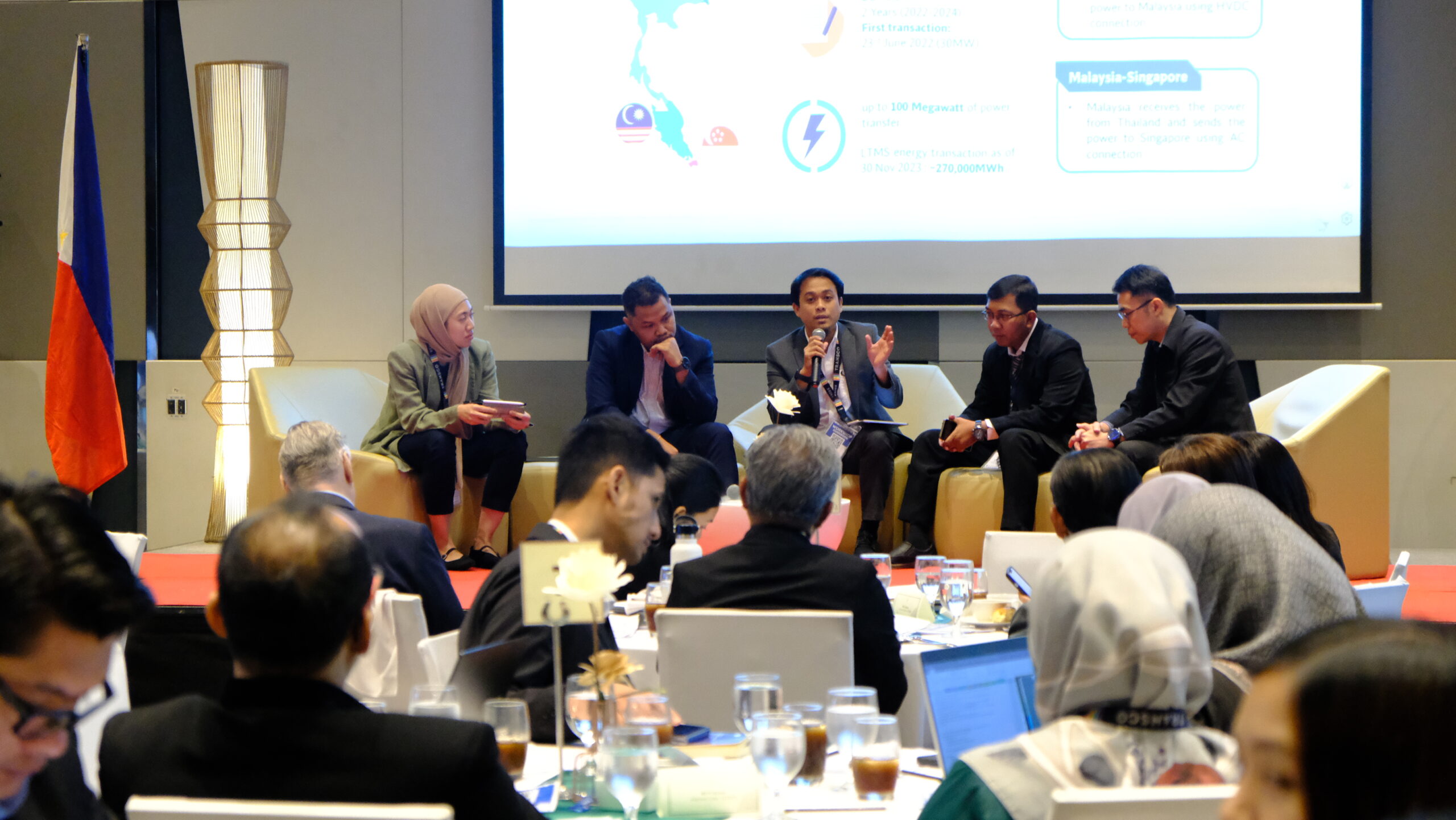
Photo 4. (left-right) Panel discussion moderated by Nadhilah Shani, Senior Research Analyst on Power at ACE with Nik Ahmad Nazirul from TNB(Malaysia), Panom Parinya from ERC (Thailand), Vanny Rin from EDC of Cambodia and Muhammad Kuncoro from MEMR of Indonesia as panellists.
In the afternoon sessions, Hans-Arild Bredesen, CEO of Bredesen Consulting shared the existing efforts of Wheeling Charges in ASEAN Region from the ADB’s wheeling charges formulation used in the Greater Mekong Subregion (GMS) Regional Power Trade Coordination Committee (RPTCC). This was followed by John Garvey and Carolyn Wetterlin who explored building blocks for transmission rate making, discussed the cost allocation of transmission costs amongst ASEAN stakeholders. Panel discussion moderated by Nadhilah Shani featured Dr.Panom Parinya representatives from Energy Regulatory Commission (ERC) of Thailand, Nik Ahmad Nazirul from TNB of Malaysia, Vanny Rin from Electricite du Cambodge (EDC) of Cambodia, and Muhammad Kuncoro from MEMR of Indonesia discussed the lessons learned from the Lao PDR-Thailand-Malaysia-Singapore (LTMS) wheeler countries of Thailand and Malaysia, also explored the possibility of developing wheeling charges for future multilateral power trade involving Cambodia through Lao PDR-Cambodia-Singapore (LCS) and Indonesia through Brunei-Indonesia-Malaysia-Philippines (BIMP).
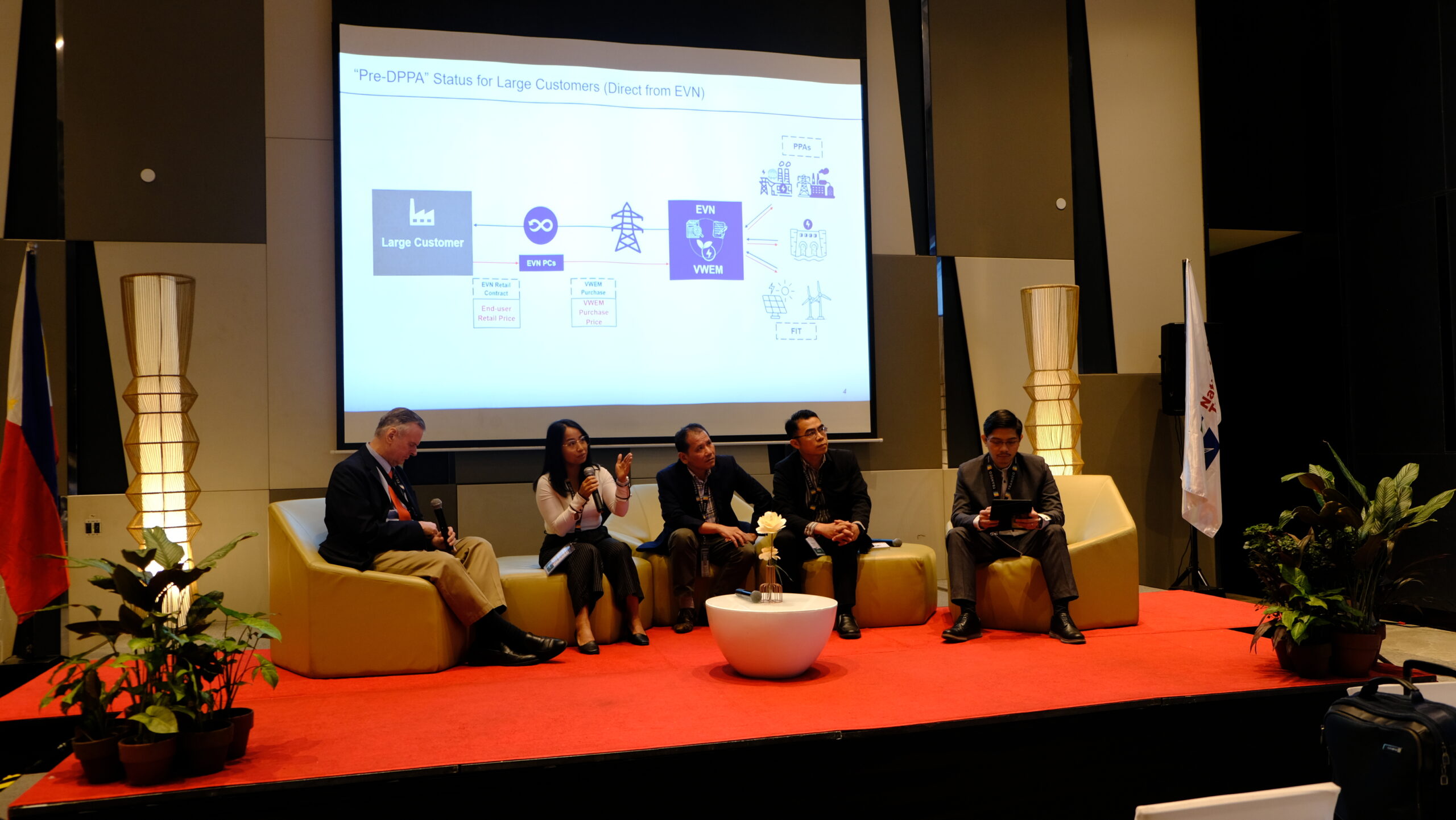
Photo 5. (left-right) Panel discussion moderated by Grayson Heffner, Director, Utilization & Power Trade, USAID SPP with Dr. Panom Parinya from ERC (Thailand), and Alvin Jones Ortega from ERC (Philippines), Dao Quoc Vu from EVN (Viet Nam), and Nguyen T. Nhu Van from USAID V-LEEP (Viet Nam) as panellists.
On the second day of the workshop, the technical session by John Garvey and Carolyn Wetterlin continued to deliver comprehensive presentations on the distribution/retail wheeling methods. The panel discussion on the Direct Power Purchase (DPP), Third Party Access, and Retail Wheeling moderated by Grayson Heffner featured experts of Dr. Panom Parinya from ERC (Thailand), and Alvin Jones Ortega from ERC (Philippines), Dao Quoc Vu from Vietnam Electricity (EVN), and Nguyen T. Nhu Van from USAID Vietnam Low Emission Energy Program (V-LEEP) updated the current status of Direct Power Purchase Agreement (DPPA), Third Party Access (TPA) and retail wheeling from AMS panellists to encourage greater utilisation of RE and cross-border RE trading or multilateral power trading (MPT) in APG context and led to hands-on group practice in designing wheeling charges methodology associated with the DPP utilisation of the asset.
The workshop concluded with a comprehensive discussion and calculation exercises that left equipped with a deeper understanding in formulating and calculating wheeling charges for MPT to apply newfound knowledge from the workshop to uphold the significant step towards harmonising the regional power trade and renewable energy integration across ASEAN, paving the way for a more advanced interconnected and sustainable future.
